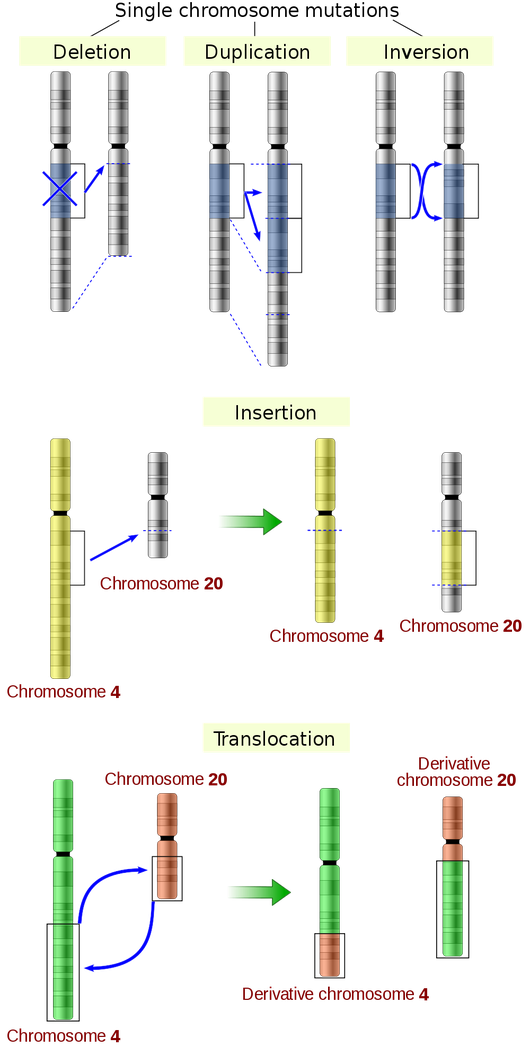A genome rearrangement is a major genomic mutation, usually driven by errors in cell division following meiosis or mitosis. These large-scale changes to the structure of chromosomes are almost always harmful and usually result in the death or sterility of the developing organism, but in very rare cases, they provide a significant advantage. For example, duplications of chromosomal segments can introduce an extra copy of a beneficial gene, which allows one of the gene copies to evolve a modified function.
